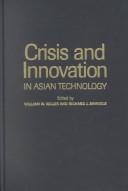| Listing 1 - 5 of 5 |
Sort by
|

ISBN: 080145798X 0801459222 9780801459221 9780801446122 0801446120 9780801457982 0801474906 9780801474903 Year: 2007 Publisher: Ithaca Cornell University Press
Abstract | Keywords | Export | Availability | Bookmark
 Loading...
Loading...Choose an application
- Reference Manager
- EndNote
- RefWorks (Direct export to RefWorks)
For the past sixty years, the U.S. government has assumed that Japan's security policies would reinforce American interests in Asia. The political and military profile of Asia is changing rapidly, however. Korea's nuclear program, China's rise, and the relative decline of U.S. power have commanded strategic review in Tokyo just as these matters have in Washington. What is the next step for Japan's security policy? Will confluence with U.S. interests-and the alliance-survive intact? Will the policy be transformed? Or will Japan become more autonomous? Richard J. Samuels demonstrates that over the last decade, a revisionist group of Japanese policymakers has consolidated power. The Koizumi government of the early 2000's took bold steps to position Japan's military to play a global security role. It left its successor, the Abe government, to further define and legitimate Japan's new grand strategy, a project well under way-and vigorously contested both at home and in the region. Securing Japan begins by tracing the history of Japan's grand strategy-from the Meiji rulers, who recognized the intimate connection between economic success and military advance, to the Konoye consensus that led to Japan's defeat in World War II and the postwar compact with the United States. Samuels shows how the ideological connections across these wars and agreements help explain today's debate. He then explores Japan's recent strategic choices, arguing that Japan will ultimately strike a balance between national strength and national autonomy, a position that will allow it to exist securely without being either too dependent on the United States or too vulnerable to threats from China. Samuels's insights into Japanese history, society, and politics have been honed over a distinguished career and enriched by interviews with policymakers and original archival research. Securing Japan is a definitive assessment of Japanese security policy and its implications for the future of East Asia.
National security --- Japan --- East Asia --- Military policy. --- Foreign relations --- Foreign relations. --- National security - Japan --- Japan - Military policy --- Japan - Foreign relations - 1945 --- -East Asia - Foreign relations
Book
ISBN: 0801468027 0801468035 9780801468032 9780801452000 0801452007 1322500541 9780801468025 Year: 2013 Publisher: Ithaca Cornell University Press
Abstract | Keywords | Export | Availability | Bookmark
 Loading...
Loading...Choose an application
- Reference Manager
- EndNote
- RefWorks (Direct export to RefWorks)
On March 11, 2011, Japan was struck by the shockwaves of a 9.0 magnitude undersea earthquake originating less than 50 miles off its eastern coastline. The most powerful earthquake to have hit Japan in recorded history, it produced a devastating tsunami with waves reaching heights of over 130 feet that in turn caused an unprecedented multireactor meltdown at Fukushima Daiichi Nuclear Power Plant. This triple catastrophe claimed almost 20,000 lives, destroyed whole towns, and will ultimately cost hundreds of billions of dollars for reconstruction.In 3.11, Richard Samuels offers the first broad scholarly assessment of the disaster's impact on Japan's government and society. The events of March 2011 occurred after two decades of social and economic malaise-as well as considerable political and administrative dysfunction at both the national and local levels-and resulted in national soul-searching. Political reformers saw in the tragedy cause for hope: an opportunity for Japan to remake itself. Samuels explores Japan's post-earthquake actions in three key sectors: national security, energy policy, and local governance. For some reformers, 3.11 was a warning for Japan to overhaul its priorities and political processes. For others, it was a once-in-a-millennium event; they cautioned that while national policy could be improved, dramatic changes would be counterproductive. Still others declared that the catastrophe demonstrated the need to return to an idealized past and rebuild what has been lost to modernity and globalization.Samuels chronicles the battles among these perspectives and analyzes various attempts to mobilize popular support by political entrepreneurs who repeatedly invoked three powerfully affective themes: leadership, community, and vulnerability. Assessing reformers' successes and failures as they used the catastrophe to push their particular agendas-and by examining the earthquake and its aftermath alongside prior disasters in Japan, China, and the United States-Samuels outlines Japan's rhetoric of crisis and shows how it has come to define post-3.11 politics and public policy.
Disaster relief --- Tohoku Earthquake and Tsunami, Japan, 2011 --- Fukushima Nuclear Disaster, Japan, 2011 --- Fukushima I Nuclear Disaster, Japan, 2011 --- Fukushima II Nuclear Disaster, Japan, 2011 --- Fukushima Accident, Japan, 2011 --- Fukushima Daiichi Nuclear Disaster, Japan, 2011 --- Fukushima Daini Nuclear Disaster, Japan, 2011 --- Fukushima Disaster, Japan, 2011 --- Fukushima Nuclear Accident, Japan, 2011 --- Nuclear power plants --- Great East Japan Disaster, Japan, 2011 --- Great East Japan Earthquake, Japan, 2011 --- Great Tohoku Earthquake, Japan, 2011 --- Great Tohoku Kanto Earthquake, Japan, 2011 --- Northeast Region Pacific Ocean Offshore Earthquake, Japan, 2011 --- Pacific Offshore Tohoku Region Earthquake, Japan, 2011 --- Tohoku Pacific Ocean Earthquake, Japan, 2011 --- Earthquakes --- Tsunamis --- Disaster assistance --- Emergency assistance in disasters --- Emergency relief --- Emergency management --- Human services --- Political aspects --- Political aspects. --- Accidents --- Japan --- al-Yābān --- Giappone --- Government of Japan --- Iapōnia --- I︠A︡ponii︠a︡ --- Japam --- Japani --- Japão --- Japon --- Japonia --- Japonsko --- Japonya --- Jih-pen --- Mư̄ang Yīpun --- Nihon --- Nihon-koku --- Nihonkoku --- Nippon --- Nippon-koku --- Nipponkoku --- Prathēt Yīpun --- Riben --- State of Japan --- Yābān --- Yapan --- Yīpun --- Zhāpān --- Япония --- اليابان --- يابان --- 日本 --- 日本国 --- Politics and government --- Jepun --- Yapon --- Yapon Ulus --- I︠A︡pon --- Япон --- I︠A︡pon Uls --- Япон Улс
Book
ISBN: 1501741594 9781501741609 1501741608 9781501741593 9781501741586 1501741586 Year: 2019 Publisher: Ithaca Cornell University Press
Abstract | Keywords | Export | Availability | Bookmark
 Loading...
Loading...Choose an application
- Reference Manager
- EndNote
- RefWorks (Direct export to RefWorks)
"Two decades into the 21st century, after more than a century of dangerously uneven performance that contributed to national devastation and often uncomfortable subordination to their powerful U.S. ally, Japanese leaders have begun to reinvent their nation's flawed intelligence community"--
Intelligence service --- Counter intelligence --- Counterespionage --- Counterintelligence --- Intelligence community --- Secret police (Intelligence service) --- Public administration --- Research --- Disinformation --- Secret service --- History. --- Intelligence service. --- POLITICAL SCIENCE --- Administration --- Civil government --- Commonwealth, The --- Government --- Political theory --- Political thought --- Politics --- Science, Political --- Social sciences --- State, The --- Intelligence & Espionage. --- Japan. --- al-Yābān --- Giappone --- Government of Japan --- Iapōnia --- I︠A︡ponii︠a︡ --- Japam --- Japani --- Japão --- Japon --- Japonia --- Japonsko --- Japonya --- Jih-pen --- Mư̄ang Yīpun --- Nihon --- Nihon-koku --- Nihonkoku --- Nippon --- Nippon-koku --- Nipponkoku --- Prathēt Yīpun --- Riben --- State of Japan --- Yābān --- Yapan --- Yīpun --- Zhāpān --- Япония --- اليابان --- يابان --- 日本 --- 日本国 --- J4888.90 --- History --- Japan: Defense and military -- intelligence, espionage --- Japanese Security, Intelligence, Military, Counterintelligence, Cybersecurity, Covert Action, Stovepipes. --- I͡Aponii͡
Book
ISBN: 9780691613178 0691613176 9781400856794 1400856795 069107657X 0691101523 9780691076577 9780691101521 Year: 1983 Publisher: Princeton, New Jersey : Princeton University Press,
Abstract | Keywords | Export | Availability | Bookmark
 Loading...
Loading...Choose an application
- Reference Manager
- EndNote
- RefWorks (Direct export to RefWorks)
This is the first major study of politics and public administration in Japan to balance the prevailing view of the regional policy process from above" with a view "from below." Developing a comparative framework for understanding the place of localities in policy making, he demonstrates that relations among localities in Japan are much more important than previously supposed.Originally published in 1983.The Princeton Legacy Library uses the latest print-on-demand technology to again make available previously out-of-print books from the distinguished backlist of Princeton University Press. These editions preserve the original texts of these important books while presenting them in durable paperback and hardcover editions. The goal of the Princeton Legacy Library is to vastly increase access to the rich scholarly heritage found in the thousands of books published by Princeton University Press since its founding in 1905.
Decentralization in government --- Local government --- Regional planning --- Regionalism --- J4670 --- J4600.90 --- Human geography --- Nationalism --- Interregionalism --- Japan: Politics and law -- local politics and government -- general and history --- Japan: Politics and law -- history -- postwar Shōwa (1945- ), Heisei period (1989- ), contemporary

ISBN: 0521524091 0521818710 0511180713 0511061420 0511055099 0511307659 051161005X 128043466X 1139148680 051106988X 1107135567 9780511061424 9780521818711 9780511610059 9780521524094 9780511069888 9786610434664 6610434662 9781280434662 9781139148689 9780511180712 9780511055096 9780511307652 Year: 2003 Publisher: Cambridge : Cambridge University Press,
Abstract | Keywords | Export | Availability | Bookmark
 Loading...
Loading...Choose an application
- Reference Manager
- EndNote
- RefWorks (Direct export to RefWorks)
In mid-May 1997, a financial crisis erupted in Asia after an attack by private investors on the baht, the Thai currency. The crisis spread quickly across the region, where investor confidence plummeted, resulting in massive capital outflows, stock market collapses, high unemployment, and even insurrection. The Asian 'economic miracle' that had stimulated so much awe and even dread, now invoked pity and apprehension in greater measure. The contributors to this volume investigated change in the innovation and production systems of Asian states in response to economic and political upheaval. They conducted empirical studies of several regional industries - autos, semiconductors, and hard disk drives - and seven different national economies: China, Malaysia, Japan, Singapore, South Korea, Thailand, and Taiwan. In the face of crisis and global competition, the Asian states superimposed change at the margins, seeking unique technohybrid solutions to build capabilities to compete in local, regional, and even global markets.
Competition, International. --- Financial crises. --- Microelectronics industry. --- Technological innovations. --- Business & Economics --- Economic History --- Social Sciences --- Political Science --- Technological innovations --- Financial crises --- Microelectronics industry --- Economic aspects --- Electronic industries --- International competition --- World economics --- International relations --- International trade --- War --- Breakthroughs, Technological --- Innovations, Industrial --- Innovations, Technological --- Technical innovations --- Technological breakthroughs --- Technological change --- Creative ability in technology --- Inventions --- Domestication of technology --- Innovation relay centers --- Research, Industrial --- Technology transfer --- Competition, International --- E-books
| Listing 1 - 5 of 5 |
Sort by
|

 Search
Search Feedback
Feedback About
About Help
Help News
News